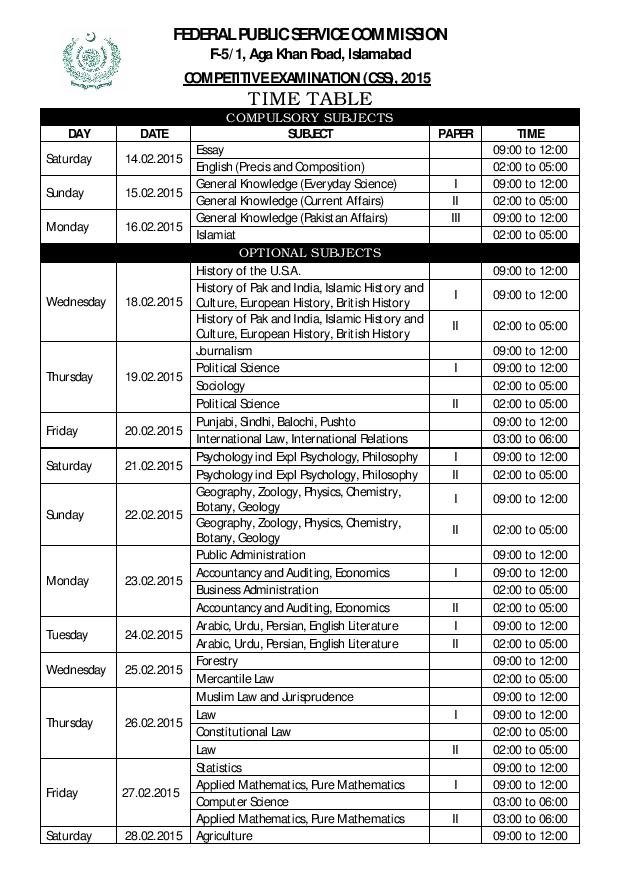
These are cheap books by both price and quality. An Urdu-Bazar publishing wizard would publish it giving a glistening coloured title page to attract the eyes of a reader. Either a writer offers plagiarized material or a writer is just a compiler and falsely claims himself as a writer. In the market, Urdu Bazar, there are available low-priced published books consisting of material downloaded from certain websites. Candidates read low quality books thanks to the (mis)guidance offered by CSS coaching academies sprawling across the country. Advertently, prospective candidates rely on the high-score probability of an optional subject, and not on their own effort to score high. Second, many CSS candidates presume that if an optional subject scored highly last year, it would also score likewise next year, whether or not the candidate is prepared in the subject. Their silence militates against them eventually when the FPSC declares the result. Prospective candidates do not ask that they want to be taught by the teacher of the high scorer and not by the high scorer himself. To prospective candidates, a faculty member is introduced as a high scorer last year in, for instance, International Relations. These academies deceitfully claim that they have a faculty of high quality to coach (or teach) candidates a short route to sure success. A nefarious role is also played by CSS coaching academies, which push prospective CSS candidates to select a subject taught therein. Similarly, candidates with the background of arts and literature face problems in understanding scientific subjects such as Geography and Public Administration. Candidates with the background of science find it difficult to comprehend subjects entailing history such as International Relations, International Law, US History and even Political Science. More candidates means more competition to produce a high quality answer sheet to secure high marks in a given subject. Consequently, more candidates opt for International Relations, International Law, Political Science, US History, Criminology and Gender Studies, overlooking their own aptitude for an optional subject. Looking at faults in the preparation of optional subjects, one can identify four main problem areas.įirst, with the change of syllabus and the optional subject-selection scheme in 2016, the choice of combination for optional subjects shrank.

Both factors– the selection of questions and the mode of answering them– hinge on the kind of preparation a candidate did before taking the examination. Second, the marks sheet is also handicapped in revealing the kind of questions a candidate selected for answering and the way the candidate answered the questions in the CSS examination. Nevertheless, such a conclusion remains non-representative and non-exploratory given the total number of candidates exceeding 14,000. Practically, a few, which may amount to a dozen, a hundred, or even a thousand, can be studied to derive a conclusion.

First, there is available no credible method applying which any school of thought can get access to the marks sheets of all or most across-the-country CSS candidates who passed or failed the examination. Prospective CSS candidates make it difficult for themselvesĪny conclusion contingent on the study of the detailed marks sheets is dubious in two ways. Passing the CSS examination is not getting difficult.

Reliance is placed on the Detailed Marks Sheets blaming the FPSC (or its examiners) for targeting certain subjects for “using questionable stimuli and highly controversial methods of discouraging candidates from opting for certain optional subjects in the CSS exam.” The school also thinks that the FPSC applies an astringent marking scheme. There is a school of thought focusing on the number of failed candidates, apportioning the blame of failure to the marking system of the FPSC. Is the CSS examination getting difficult to pass? Of course, in the examination of the Central Superior Services (CSS), which the FPSC conducted in February 2019 across the country, 372 candidates passed the written portion whereas 14,521 candidates failed to do so. Another vindication could be that the marking system employed by the Federal Public Service Commission (FPSC) is inconsistent and inconsiderate. The fault is in my stars, a trite excuse to obscure one’s underperformance. Coaching academies have a negative role.


 0 kommentar(er)
0 kommentar(er)
